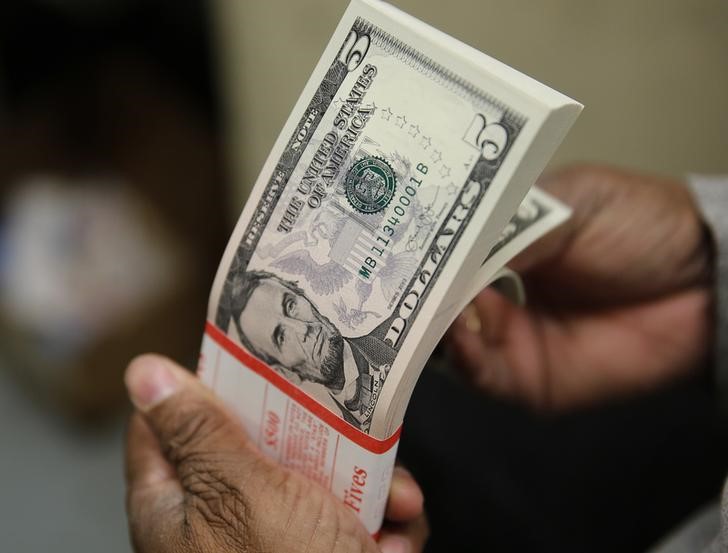By Yasin Ebrahim
Investing.com – The dollar's sunny days are set to continue for quite a while, but the Fed's path will eventually turn murky again to bring the bears out of hiding.
The U.S. dollar index, which measures the greenback against a trade-weighted basket of six major currencies, rose 0.35% to 92.2, and looks set to notch a third-weekly gain.
“Admittedly, the current moderate USD strength may continue for quite a while,” Commerzbank (DE:CBKG) said in a note. The positive remarks come just days after the Federal Reserve kept its benchmark rate on hold, but released projections showing rate hikes in 2023.
“After publication of the latest FOMC projections, the dollar was able to gain significantly,” [even as] the OIS market has been pricing in a first Fed rate hike in 2023 for some time,“ Commerzbank said.
But liftoff could occur even sooner, according to St. Louis Federal Reserve President James Bullard.
“I put us starting in late 2022,” Bullard said Friday during a TV interview on CNBC. "[M]y forecast said 3% inflation in 2021 -- core PCE inflation -- and 2.5% core PCE inflation in 2022."
"To me, that would meet our new framework where we said we’re going to allow inflation to run above target for some time, and from there we could bring inflation down to 2% over the subsequent horizon," he added.
The hawkish tone from Bullard didn’t spook the bond market as the bid remained in place, but yields are expected to eventually move higher, albeit gradually, and that will add another tailwind for the greenback.
“We expect the yield on the 10-year Treasury note to gradually rise into the 2.25% to 2.75% range by YE 2022 from the current 1.5%,” Wells Fargo (NYSE:WFC) said in a note.
“The U.S. Federal Reserve’s near-zero fed funds interest rate target is unlikely to change over the coming 18 months, but at some point during this time period, our central bankers will likely start to hint that they will begin reducing (or “tapering” in Fed-speak) the amount of bonds they are buying in the open market each month from the current $120 billion,” it added.
But for those hoping this could be end of the bear market for the dollar, think again. The dollar’s fate is tied to the Fed’s policy measures and the central bank’s outlook on inflation. This outlook may need to be revised when winter comes calling as the inflationary pressures could abate.
“Only when inflationary pressures ease significantly again in the fall and winter […] should the Fed start to worry again that permanent re-inflation might not materialize after all,” Commerzbank said. “This should make Fed normalization seem less certain again and weigh on the dollar again. We expect the dollar to weaken again from then on.”
